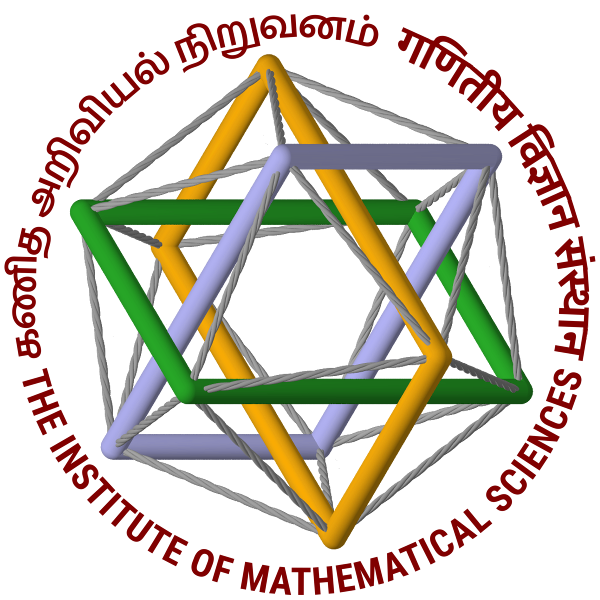A national institute for research in the theoretical sciences
Upcoming Events
Jun 19
11:30-12:45
11:30-12:45
Priyotosh Bandyopadhyay | IIT - Hyderabad
Physics Seminar | Alladi Ramakrishnan Hall
Jun 19
14:00-15:00
14:00-15:00
Agnid Banerjee | Arizona State University
Mathematics Colloquium | Alladi Ramakrishnan Hall
Jun 20
11:30-12:30
11:30-12:30
Soumyadip Sarkar | IMSc
Representation Theory of Quantum Groups-4
Mathematics Seminar | Room 327
Jun 23
09:00-17:00
09:00-17:00
NA | IMSc Chennai
Conference | Ramanujan Auditorium
Jun 23
16:00-17:30
16:00-17:30
NA | IMSc Chennai
Conference | Room 117





